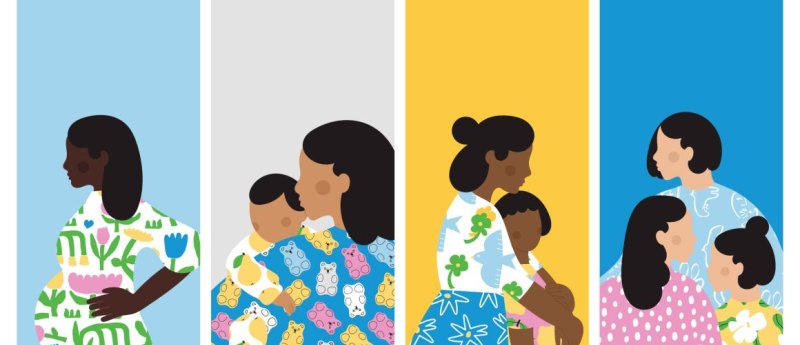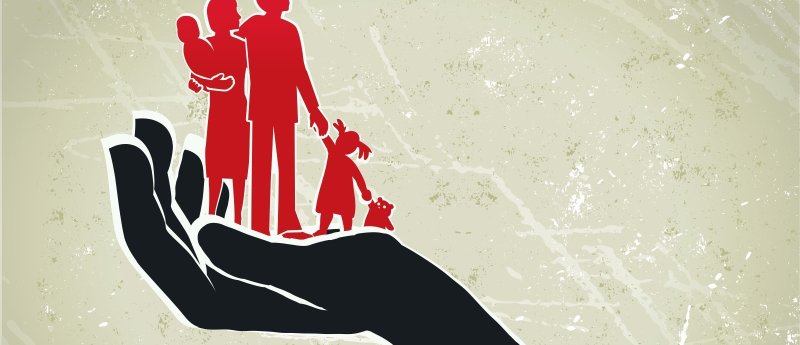 Children and Families
Children and Families
-
 Turning research into actionAdvancing Maternal Health Equity: What We’ve Learned from P4A Research
Turning research into actionAdvancing Maternal Health Equity: What We’ve Learned from P4A ResearchThis Black History Month 2025, P4A is focusing on Black maternal health. We published a substantial body of research in the last year that examines the factors that contribute to persistent disparities in maternal health outcomes in the United States.
February 26, 2025
|P4A Spark
| -
 Turning research into actionCan Medicaid and Immigration Policies Help Close Perinatal Care Gaps among Latinx Families?
Turning research into actionCan Medicaid and Immigration Policies Help Close Perinatal Care Gaps among Latinx Families?Longstanding concern in the health research community over racial disparities in maternal health is growing stronger. Large gaps in access to and the quality of perinatal care - the crucial information and screenings recommended before, during, and after pregnancy - exist within the Latinx community.
October 24, 2024
|P4A Spark
| -
Children and FamiliesPerinatal care among Hispanic birthing people: Differences by primary language and state policy environment
The study investigates the utilization and quality of maternal care among Hispanic birthing people, focusing on differences by primary language (Spanish vs. English) and state policy environment.
October 1, 2024
|Evidence
| -
 Turning research into actionHow “Tough on Crime” Laws Impact Population Health
Turning research into actionHow “Tough on Crime” Laws Impact Population HealthOur study described below addresses how two “tough on crime” laws–Three Strikes and Truth in Sentencing–may have impacted birth outcomes of Black women between 1984 and 2004. While research exists on the role state incarceration policies play in increasing mass incarceration in the U.S., their role in shaping population health and health disparities have remained largely unknown.
September 9, 2024
|P4A Spark
| -
Maternal and Reproductive HealthHow Structural Racism, Neighborhood Deprivation, and Maternal Characteristics Contribute to Inequities in Birth Outcomes
This study examines the persistent disparities in birth outcomes between infants born to Black and white mothers in the United States from 2007 to 2018. The research focuses on understanding how structural racism, neighborhood deprivation, and maternal characteristics contribute to these inequities.
August 2, 2024
|Evidence
| -
 Turning research into actionSeeking Policy Solutions to Support Women’s Health
Turning research into actionSeeking Policy Solutions to Support Women’s HealthThe body of serious research into women’s health now includes many reliable studies that help us understand the unique biological factors that affect women. There is also intriguing research on the wide range of social determinants impacting the health of women and girls.
May 13, 2024
|P4A Spark
| -
 Children and FamiliesWhat Policies Will Allow Immigrants and Their Families to Thrive?
Children and FamiliesWhat Policies Will Allow Immigrants and Their Families to Thrive?This post originally appeared on the Robert Wood Johnson Foundation Culture of Health Blog.
February 5, 2024
|P4A Spark
| -
Children and FamiliesEvaluating the Impact of Nebraska’s Indian Child Welfare Act
In 1978, the Indian Child Welfare Act (ICWA) began the process of ameliorating centuries of prejudice, racism, and deliberate attempts to strip Indigenous peoples of their culture and heritage. The legislation created legal boundaries to protect Indian families and communities from the loss of their children.
July 14, 2023
|P4A Spark
| -
Maternal and Reproductive HealthMunicipality-level Variation in Severe Maternal Morbidity and Association with Municipal Expenditures in New Jersey
Severe maternal morbidity (SMM)—defined by the Centers for Disease Control and Prevention as unintended outcomes of labor and delivery that result in significant short- or long-term consequences to a woman’s health—is a major determinant of maternal mortality. Each year 15 of every 1,000 people hospitalized for a delivery experience SMM. In addition to adverse health outcomes, SMM can lead to disruptions in mother-infant bonding, which can compromise children’s social and emotional development, and confers substantial economic costs to families, communities, and insurers including Medicaid.
November 19, 2021
|Evidence
| -
Children and FamiliesShort-term effects of the earned income tax credit on children's physical and mental health
Childhood poverty is associated with worse health outcomes, including poor physical and cognitive development, and can adversely influence social and health outcomes in later life. While there is increasing interest in policies to address childhood poverty, limited research exists on whether current U.S. poverty alleviation policies, including the largest such program, the Earned Income Tax Credit (EITC), improve children's health.
June 1, 2021
|Evidence
| -
Maternal and Reproductive HealthPost-ACA, More Than One-third Of Women with Prenatal Medicaid Remained Uninsured Before or After Pregnancy
Since the early 1990s, Medicaid has been critical in providing insurance coverage for pregnant women with low incomes in the United States - pregnancy-related Medicaid coverage is available to women with incomes up to 200 percent of the federal poverty level in most states. Building on existing studies tracking changes in Medicaid coverage and uninsurance under the law, researchers Emily M. Johnston, Stacey McMorrow, Clara Alvarez Caraveo and Lisa Dubay examined data for new mothers with Medicaid-covered prenatal care in this study published in Health Affairs.
April 5, 2021
|Evidence
| -
Maternal and Reproductive HealthMedicaid Expansion Increased Preconception Health Counseling, Folic Acid Intake, and Postpartum Contraception
The period before pregnancy is critically important for the health of a woman and her infant, yet not all women have access to health insurance during this time. Rebecca Myerson of the University of Wisconsin-Madison, Samuel Crawford of the University of Southern California, and Laura R. Wherry of New York University evaluated whether increased access to health insurance under the Affordable Care Act (ACA) Medicaid expansions affected ten preconception health indicators, including the prevalence of chronic conditions and health behaviors, birth control use and pregnancy intention, and the receipt of preconception health services.
November 1, 2020
|Evidence
|